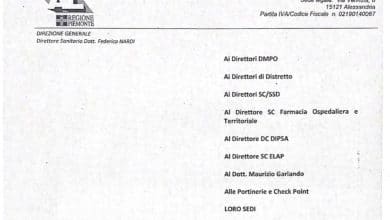
We receive and publish
I try to describe what I believe is a direct consequence of the new "dignity decree" on employment contracts.
In March 2017, I and 50 other people throughout Italy were hired by QUINTILES on a 1-year fixed-term basis as ISF specialist for the Novartis cardiology line and, only orally, they told us that it could be extended for another year.
 In March 2018 they extended our contract for 6 months with expiry on 2 September 2018 (in my opinion it was a "pre-election precaution") and this made us think that it would end there...
In March 2018 they extended our contract for 6 months with expiry on 2 September 2018 (in my opinion it was a "pre-election precaution") and this made us think that it would end there...
However, we all worked with maximum commitment since the period coincided perfectly with cycle 2 (quarter May-August) and related incentive bonus.
On 16 May 2018 we were summoned to a national meeting and, in the plenary session, the sales manager informed us (orally) that they would be extending another 6 months until March 2019.
And so far only promises to make us work with "enthusiasm" until the last day? Hm?
About mid-June we received the email calling for the National Meeting from 4 to 8 September, complete with train tickets for Milan, as well as various emails relating to various projects to follow in the coming autumn. And this made us understand that the extension would soon arrive... (since our contract expired on September 2)... Am I wrong?
On 20 July, close to the holidays, like a bolt from the blue, just in the days in which the "dignity decree" is being discussed, we were informed by email that our contract expiring on 2 September will not be extended. As it happens, the extension would have brought us exactly 24 months of fixed-term contract!
Deceived, mocked, humiliated, we don't even have time to look around to look for another job.
I would like the Government to become aware of this disaster which is not the hypothesis of a possible consequence of the decree but is an objective and indisputable FACT.
Maybe I was long-winded and unclear and even more so I thank you immensely for reading my email.
Best wishes
CC
(Signed Letter)
Related news: DECREE-LAW 12 July 2018, n. 87. Urgent provisions for the dignity of workers and businesses.
Modified in Parliament: land words of the last period: "of the contracts in progress on the same date" are replaced by the following: «contracts subsequent to 31 October 2018».
Therefore, during the transitional period, which will last until 31 October to allow companies to adapt, the current provisions can still be applied to existing contracts. The new contracts, on the other hand, will have to immediately adapt to the provisions of the decree.
In other words, for extensions and renewals, the previous discipline of the will remain valid legislative decree n. 81/2015: i.e. that of the 36 months without the causal.
Related news: Noote from CGIL-CISL-UIL on the Dignity Decree
First of all, we express all our understanding and solidarity with our colleague. Victims of injustice and exploitation fill us with anger and indignation.
However, some aspects need to be clarified. From what she says she was hired by Quintiles as an ISF with a temporary contract and by this "rented" with temporary work to Novartis. In Novartis she was employed by the Sales Director who, after a second renewal, "fired" her due to the Dignity Decree.
Only for the fact that it depended, as you say, on the Sales Director should Novartis be sued for violation of art. 122 and 126 of Legislative Decree 219/06. Also, if the temporary job is permanent, what kind of temporary job is it? Therefore the temporary employment contract was not renewed by Quintiles only for a Decree which in any case still had to pass the definitive approval of the Chambers where it could have been and in fact has been modified.
Among other things, the Dignity Decree states in art. 1 paragraph 2 "The provisions referred to in paragraph 1 apply to fixed-term employment contracts stipulated after the date of entry into force of this decree, as well as to renewals and contractual extensions after 31 October 2018”. It follows that the Decree does not affect fixed-term contracts already in place which can be renewed up to 36 months, as before and, in the case of the Colleague, could also be renewed on 2 September, the expiry date of her temporary contract. However one thinks of it, it also follows that if the Colleague's temporary employment contract were not to be renewed, there would be confirmation that it has nothing to do with the Dignity Decree.
In all of this, the Dignity Decree seems to us to be just a pretext. We think that the responsibility for the non-renewal lies above all with Novartis and Quintiles who have beautifully made fun of the workers, deceiving them. Our opinion of course, trying to maintain independence of judgment from political exploitation.
However, we remain increasingly embittered when certain things are exploited, just to create false expectations. Undermining the true dignity of which many workers are victims.
On the so-called Dignity Decree, without going into the political but only working evaluation, to truly restore dignity to people, even before workers, one could also think of reintroducing art. 18 to prevent the continuous blackmail of dismissal by employers and restore art. 4 to prevent the shameful spying on workers and last but not least, address the problem of false VAT numbers and false self-employment. Maybe you can't have everything in a Decree. Let's hope for a near future
PS: We have reported the letter to parliamentary representatives of the government majority
Fedaiisf editorial staff – August 11, 2018
What is temporary work?
In temporary work administration, the work activity is carried out by an employee of the contracting company in the interest of another person who uses the service. Basically, the worker is hired and paid by the supplying company but carries out his activity under the management and control of the user company.
The relationships between the 3 subjects are governed by 2 separate contracts (work administration contract between the supplier and the user and employment contract between the supplier and the worker). The administration of work can be fixed-term or open-ended.
The contract must be concluded in writing. The outsourced worker is not counted in the user's workforce for the purposes of applying the provisions of the law or collective agreement, with the exception of those relating to the protection of health and safety in the workplace.
For the entire duration of the mission at the user's premises, the contractor's workers are entitled, for the same tasks performed, to overall economic and regulatory conditions no lower than those of the user's employees of the same level. Furthermore, the user is jointly and severally obliged with the provider to pay the workers salaries and to pay the relative social security contributions.
In any case, the contributions, social security, insurance and welfare charges, envisaged by current legislative provisions, are borne by the administrator who is classified, for social security purposes, in the tertiary sector.






